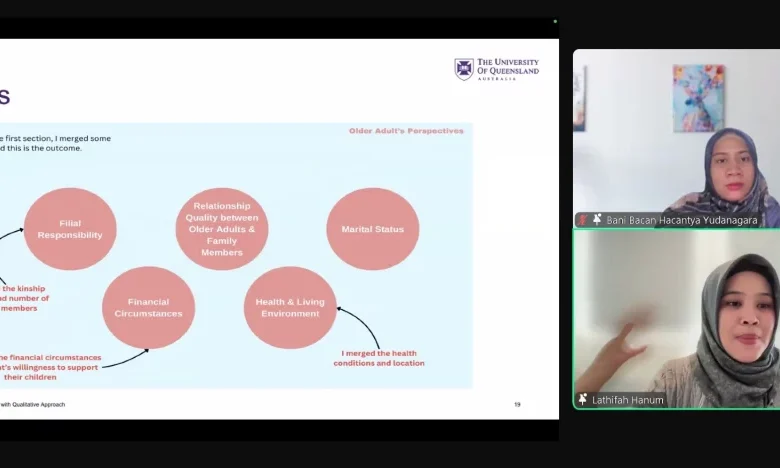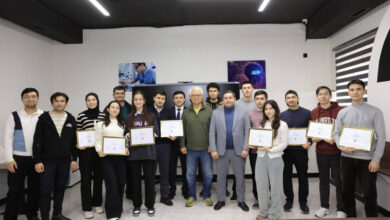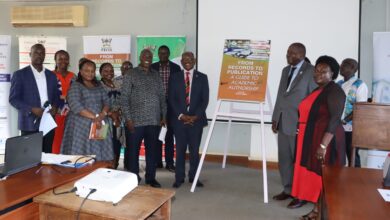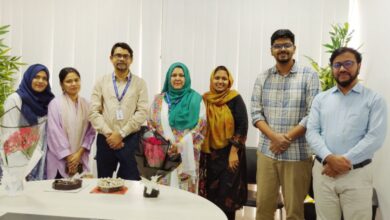UNAIR Psychology Guest Lecture: Family Roles and Intergenerational Co-residence Insights

The Faculty of Psychology at Universitas Airlangga recently conducted a guest lecture featuring Lathifah Hanum, M.Psi., a psychologist and Ph.D. candidate at the University of Queensland. The event took place on March 20, 2025, and centered around Hanum’s research titled “Intergenerational Co-residence Through the Eyes of Older Adults and Their Children: A Qualitative Approach.” This study investigates the various factors influencing the decisions of elderly parents to live with their adult children.
Key Factors in Co-residence Decisions
During the presentation, Hanum identified kinship structures and marital status as key factors that significantly affect the quality of the relationships between elderly parents and their family members. Health conditions, adaptability, financial stability, family size, and parental support were also highlighted as crucial elements influencing these co-residence decisions.
Beyond Financial Motivations
The findings of the lecture indicated that the choice for elderly parents to co-reside with their children often extends beyond financial motivations. Social norms, particularly the expectation that children provide care for aging parents, play a substantial role in these decisions.
Refining Measurement Criteria
Hanum also discussed the necessity of refining specific measurement criteria used in her study to enhance analytical accuracy. Adjustments were made in various areas, including children’s responsibilities toward parents, financial dependence, emotional bonds, health status, and marital status, in order to strengthen the analysis.
Differences in Perspectives
The research uncovered notable differences between the viewpoints of elderly parents and their adult children regarding co-residence. Adult children generally prioritize aspects such as their relationship with parents, financial stability, health conditions, and marital status. In contrast, older adults perceive kinship structures through a more nuanced lens, encompassing emotional and financial support, extended family connections, and practical matters regarding health and living arrangements.
The Role of Qualitative Research Methods
Emphasizing the significance of qualitative research methods in understanding social phenomena, Hanum noted that such methodologies necessitate a specific mindset that affects data interpretation. She highlighted that a researcher’s background can deeply influence qualitative analysis, urging participants to remain conscious of personal biases and perspectives throughout their research processes.
Concluding Insights
The lecture offered attendees at Universitas Airlangga valuable insights into intergenerational co-residence and underscored the essential role of qualitative methods in examining familial dynamics. Hanum concluded by expressing the hope that students would develop a deeper understanding of how social and psychological factors influence family co-residence decisions and effectively utilize qualitative research methods in their future work.
Source: Universitas Airlangga News




